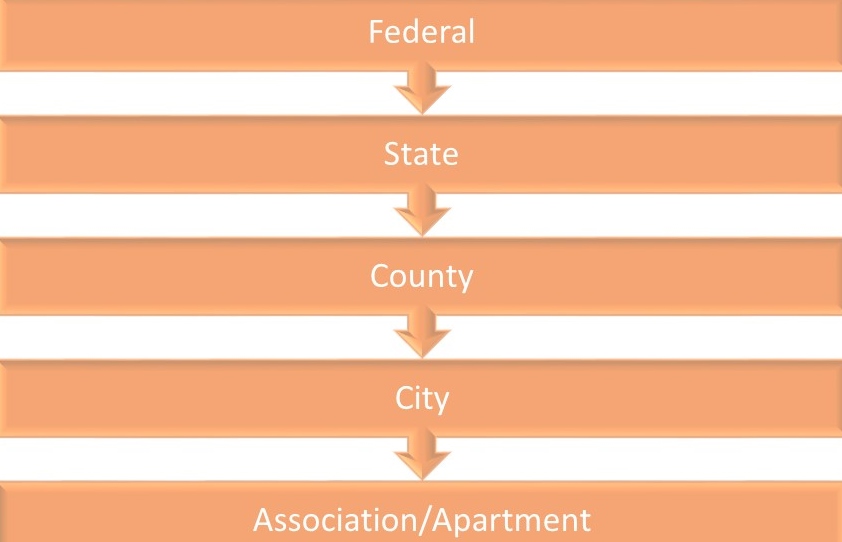Make Sure You Know Which Licenses Apply to Your Business
Posted October 12, 2018 by in Articles & Publications, BizLaw 101 Blog, Business PublicationsMake Sure You Know Which Licenses Apply to Your Business
It seems like common sense that a restaurant selling alcohol needs a liquor license, and that a construction company needs permits before starting a project. But many business owners outside of these areas don’t realize that there are licenses they need before they can open their business. Starting a new business requires not just a great idea; it also involves an understanding of the maze of licenses required before a business can open its doors. With some careful attention to licensing requirements, business owners can operate successfully and profitably without running afoul of licensing requirements.
One way to think of licensing requirements is in terms of layers. On the top, you have certain business activities that require licensing with the federal government, like air travel, guns and tobacco sales. The next layer is at the state level. In Maryland, for example, the Department of Labor, Licensing and Regulation requires licenses for home improvement contractors, plumbers, security companies, driving schools, accounting firms, and daycare centers, to name a few. The next layer is the county. As examples, builders, home healthcare agencies, and sign installers all need county licenses or permits. Some cities also impose licensing requirements. In the City of Rockville, for example, licenses are required to operate amusement and game machines, and to solicit door-to-door.
In addition to licenses that regulate business activities, other government requirements affect where a business can operate. These are typically called zoning ordinances. Home-based businesses also are limited in where they can operate, the number of visitors, and their square footage compared to the entire house. Condominium associations, homeowners’ associations, and apartment houses also can limit the types of business activities conducted within their borders.

The requirements vary depending on the location, type, and size of the business. For example, in Bethesda where our office is located, new restaurants are constantly being opened. These restaurants will need a county food service facility license and a liquor license, not to mention a number of permits. If you want to start a food truck, a county-imposed food service facility license is no surprise, but you may also need a county license for the discharge of fats and oils or a mobile food unit license.
When planning your opening date, don’t forget to factor in the licensing process, including timing and fees. Penalties for operating without a license can vary from fines to criminal charges. Every new business is unique; it’s important to put in the effort and make sure you are in compliance with all the layers of licenses applicable to your business.
If you need help starting a new business and understanding all the layers of licensing, please contact Jamie Hamelburg at Press, Dozier & Hamelburg.
Jamie Kent Hamelburg is a business and commercial real estate attorney at Press, Dozier & Hamelburg. She can be contacted at (301) 913-5200 or by email at jhamelburg@pressdozierlaw.com. Press, Dozier & Hamelburg partners with businesses to achieve their goals, and represents families and individuals, often when they are most vulnerable. Our attorneys deliver valuable insight and counsel in the areas of business law, employment law, litigation, commercial real estate, estate planning and administration, and business succession planning. We provide all of our clients with personal service, emphasizing responsiveness, sensitivity, and respect. We are located in Bethesda and serve Maryland, Virginia and Washington, DC.
Note: The content in this Blog is for informational purposes only and should not be acted upon without first consulting legal counsel. It is not intended to constitute legal advice.
